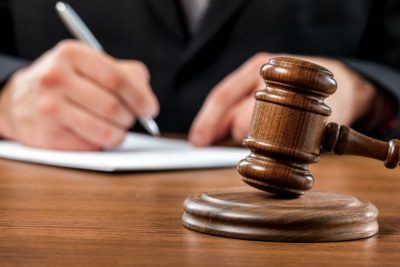No matter where you live in the US, there are laws you must obey. If you fail to follow those laws, you could find yourself in a sea of legal troubles. It’s important to learn about the long list of criminal offenses and how you can prevent finding yourself facing criminal charges.
The Definition of a Criminal Offense

Every state has unique laws regarding criminal offenses. However, there is some overlap. Some laws are federal, which makes them applicable in every state. State laws are only enforceable in the individual states. For instance, you can’t be arrested in Texas for something that’s only a minor ticketable offense in Louisiana.
Because of the differences in state laws, it’s impossible to give a strict definition of a criminal offense. But it is possible to give a general definition of the term. A criminal offense is an act that is harmful to an individual as well as a community, society, or state. It’s a public wrong that can come with penalties.
There are many different types of criminal offenses. Typically, they can be divided into five different categories.
The Types of Criminal Offenses
To better understand what constitutes criminal offenses, you need to know the types of offenses. Here are the four most common categories:
1. Personal Crimes
If you perform an act that causes physical or mental harm to another individual, you are guilty of a personal crime. This can involve hurting or killing someone. For instance, causing physical harm that causes death is a type of personal crime known as homicide.
Other violent crimes are considered personal crimes, as well. All of the following could be considered a violent crime:
- Child abuse
- Domestic abuse
- Assault and battery
- Kidnapping
- Rape
2. Property Crime
Interfering with another individual’s property is a property crime. In some cases, this type of crime involves some physical or mental harm. However, the main issue is taking away another person’s property.
Examples of property crimes include burglary, shoplifting, and car theft. Whether the theft is on a small scale or a large scale, you can face penalties.
3. Inchoate Crimes
If you start a crime but fail to complete it, you may have committed an inchoate crime. The term also refers to actions that help another crime take place. Those who are involved in a conspiracy could be charged with this type of crime.
For a court to find you guilty of an inchoate crime, there needs to be evidence that you took a step towards completing the crime. Therefore, simply thinking about committing a crime isn’t enough.
4. Statutory Crimes
Statutory crimes are those that are detailed in a statute. For example, there are statutes for alcohol-involved crimes, traffic offenses, and some white collar crimes.
Generally, statutory crimes are created in an effort to prevent people from deterring the act. Because driving under the influence has killed so many, there is a statute prohibiting drinking and driving in every state.
Sometimes, statutory crimes become much more. Although drinking and driving can be a statutory crime, it can also be a personal crime. This is the case if the drunk driver causes serious harm or death to someone else involved in the accident. In the US, there are 29 people every day who die as a result of alcohol-impaired driving. It’s a common crime with serious consequences.
5. Financial Crimes
Lying to someone for your own personal gain is a financial crime. Usually, they involve acts like blackmail, tax evasion, and internet crimes.
If you find yourself facing charges for a criminal offense, contact us at ColePaschallLaw.com. You can protect your rights and have a fair trial.










